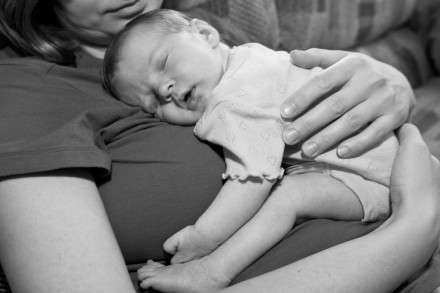Credit: limaoscarjuliet
Mothers who exclusively breastfeed their child spend 6.6 hours a week longer milk feeding than mothers who partially breastfeed or formula feed, which has important implications for health policies and programs, including paid parental leave.
"It is rarely acknowledged that exclusive breastfeeding is very time intensive," says Dr Julie Smith from the Australian Centre for Economic Research on Health at ANU, who notes health authorities recommend six months of exclusive breastfeeding, yet the current Government's Paid Parental Leave scheme is for a maximum of 18 weeks.
"Time is a big factor in how new mothers choose to feed their babies. Exclusive breastfeeding may add to the time spent feeding because you need to feed more often and it's harder to share the feeding with someone else."
"This conflict in health policies and paid parental leave needs to be rectified."
Smith and co-author Robert Forrester studied the time 139 Australian mothers took to feed their six month old child. The mothers tracked how long they spent preparing feeds, feeding solids and breastfeeding over a week using electronic time tracking devices.
"Time demands on exclusively breastfeeding mothers are particularly high. Exclusively breastfeeding mothers spent on average, over 18 hours a week breastfeeding—6.6 hours longer than mothers who have introduced solids or formula."
"Mothers who don't breastfeed exclusively spent almost four hours a week preparing and feeding solid foods or formula, in addition to time they spent breastfeeding."
The time intensive nature of exclusive breastfeeding may contribute to premature weaning for women who are time-stressed or get little assistance in child rearing.
"We need to help mothers to meet health recommendations for breastfeeding by promoting time saving strategies for new mothers, such as additional help with housework and other childcare, lactation breaks in the workplace, and on-site childcare," says Smith.
"Extending paid parental leave to six months may also help employed mothers to breastfeed exclusively for six months."
Provided by Australian National University




















